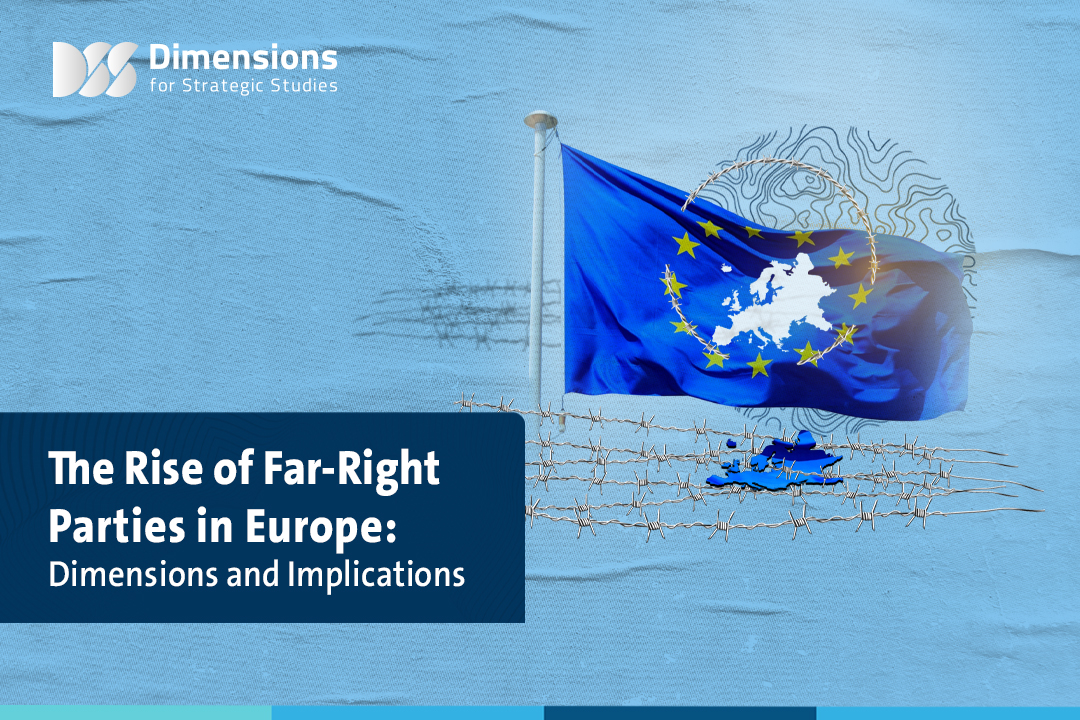
The Rise of Far-Right Parties in Europe: Dimensions and Implications
2023-04-294634 view
The European elections (2019-2022) witnessed successive waves of victory of extreme right-wing parties and their occupation of central position in the political map of Europe, as many European countries witnessed a significant economic decline, with the failure of the left and right governments to achieve their political programs and electoral promises. Such a situation pushed the extreme right parties to the forefront of events where nationalist and anti-immigration discourses triumph over the discourses of moderate parties from both left and right parties respectively.
The prosperity and rise of the far right can be attributed to economic, social, cultural and political reasons in many European countries. Which of these factors has more impact on this change is not easy to specify. It is certain that the economic crisis that erupted in 2008 and the subsequent determined pursuit by the EU and national governments of measures to control neoliberal deficits and austerity is one of the key factors behind the rise of far-right parties.
Such economic policies widen the gap between privileged elites and the bulk of the population, but far-right parties and political currents exploit the discontent of broad segments of citizens who suffer at the bottom of the social ladder. The situation is further complicated by social changes that have led to the shrinking of the former industrial working class that traditionally supported the classical left parties. Cultural changes, particularly the crisis of grand ideologies (especially on the left, with its transformative aspirations) have led to the spread of individualistic, divisive and satirical views of reality throughout European society
This paper attempts to explain the reasons for the spread of ideas and the victory of far-right parties in Europe, the implications of this phenomenon on the institutional structures within the European Union, the public policies followed by these governments and their ability to find social and economic solutions for their societies? It also addresses the impact of this rise on the European Union project, which has long entered into a policy of eastward expansion and polarization of Eastern European countries?
Furthermore, it investigates the impact of this rise on the performance of the European Parliament as a central legislative body in the European Union, especially as the number of Italian legislators is high compared to the number of the population, particularly with regard to the immigration file, and its potential impact on other geographical regions, especially the Middle East and North Africa region, that may be affected by the racist policies of the extreme right, specifically on issues of immigration, settlement and integration.
It is likely that the rise of the European right will push to reshape the map of political alliances in Europe, both at the legislative and executive level and set priorities for European governments that are struggling on the one hand to correct the course of European integration, especially as right-wing currents stand skeptical of the European Union. At the same time; however, they cannot change the rules of the political game completely and try to take advantage of the Union to get out of economic and social crises, but without abandoning sovereign national aspirations and their positions on immigration and immigrants.
At the international level, these governments cannot change the reality of alliances with many Middle Eastern countries, but may rather register a great rapprochement with many authoritarian and patriarchal regimes in the region, although the nature of these alliances and their repercussions on both sides, whether European or Middle Eastern, are still very unclear, and their features will remain hostage to future developments, especially at the level of attractiveness of European interests and their increasing needs for oil and gas in light of the R-Ukrainian war. This makes European governments probably bet on the Middle East countries for benefiting from the economic gains of the region on the one hand, and for ensuring stability and security in it to control and reduce irregular migration and the flow of refugees to Europe on the other.
Read more on the folowing link:The Rise of Far-Right Parties in Europe-1





